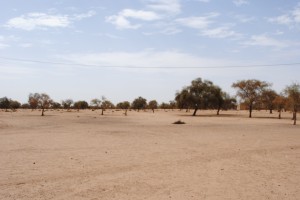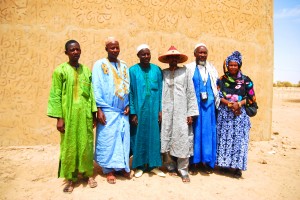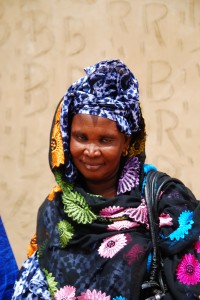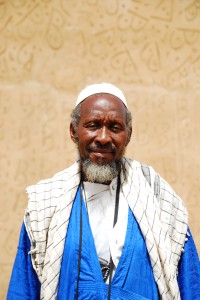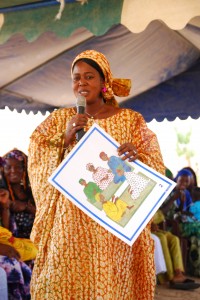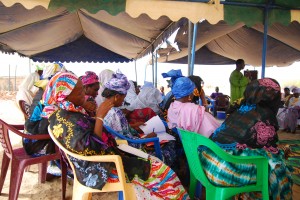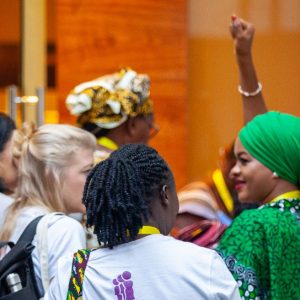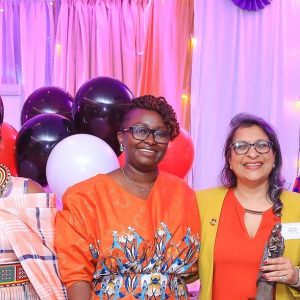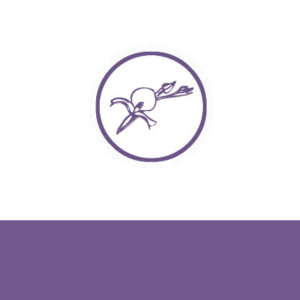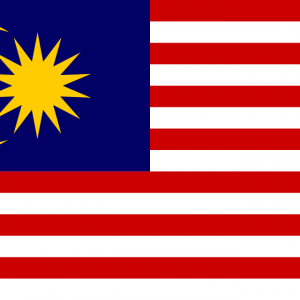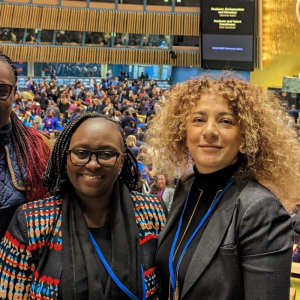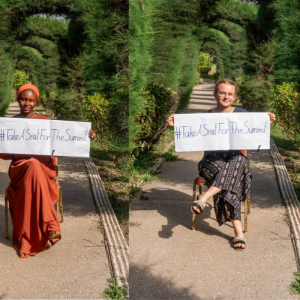Some members of the Orchid Project team have been in Senegal this week, meeting our partners Tostan and Sister Fa, and visiting our social mobilisation project in action in the Fouta. I (FGC Programmes Manager, Ruthie) wrote this blog post about the day we spent with the social mobilisation team in the village of Asnde Balla, in the Matam department of Senegal’s northernmost Fouta region.
It’s a long, long way to Ourossogui
It’s always an inspiring pleasure to get out and visit partners and projects, and after a day of meetings in Dakar with Tostan, we set out for the Fouta. Our drive from coastal, breezy Dakar to the perpetual sauna of the Fouta took the best part of a day, about ten hours in the (mercifully air conditioned!) car through a landscape which changed from cosmopolitan Dakar’s three lane highways and busy outskirts, to the Baobab trees of the Thiès area, we went around the outskirts of St Louis (where Africa’s largest jazz festival was in full swing!), and turned East, heading inland. To our surprise there were paddy fields, where Senegalese rice is cultivated thanks to the water from the nearby Senegal river, but quickly that tailed off, replaced by dust, spiked Acacia trees, and sparse settlements. Lunch was in Richard Toll, a small, buzzy town and a café with delicious chips. But the journey was only just beginning – and we continued along the surprisingly well tarmacked road to Ourossugui. We’d heard a bit about Ourossugui from Tostan Volunteers Elke and Alex, with their project updates, so we were delighted to meet Tostan Volunteer for Matam, Alex Dunkel, and the Regional Co-ordinator, Abou Diack. Walking around in the Fouta is like walking around in a sauna, with sudden gusts of hot air that remind me of opening a fan oven in the middle of baking a cake. It’s very hot. Luckily, our hotel had air conditioning (a pleasant surprise!).
Meeting the team in Asnde Balla
On Saturday (a little cooler at about 39 Celsius/102 Fahrenheit) Abou Diack and Alex came to pick us up and we all piled into the car for the journey of an hour to the village of Asnde Balla, where the Fouta’s Orchid Project-funded social mobilisation team was holding an inter-village meeting. We met the social mobilisation team, four men and a woman, and their supervisor, and sat down for a chat. With double translation (Pulaar – French – English) things took a little while but the conversations were totally fascinating and worthwhile. Since the project started in December, this social mobilisation team have had 1,350 people participate in activities through village meetings, enabling people to understand the social norm of female genital cutting, human rights, and what to do about FGC. The region of the Fouta covers a huge area, and the team members come from different departments of the region, and had convened in Asnde Balla as part of their 12 day mission for May. The team make their journeys by public transport, often including horse and cart, and give of their time freely, receiving no payment. Their dedication to the cause is simply inspiring.
Mara Samba Diallo’s story
The Fouta is a conservative region where Tostan has been working since 1997, and the first declaration in the Fouta took place in 2005. Mara Samba Diallo, a member of the social mobilisation team, was the Community Management Committee Co-ordinator of her village, which abandoned in the second declaration in the area, in 2007. Mara told us how, despite her own community having abandoned, there are still many challenges, and that this is one of the reasons why she is a social mobilisation agent, as more awareness needs to be raised. Mara herself was married aged 12, but her husband moved to Angola for a few years, meaning she had her first child in 1985. She told us of the complications she experienced in childbirth as a result of being cut, four days in labour, when everyone thought she might die. She didn’t – but she also didn’t realise that her difficult birth was connected with the cut. Mara told us that her own realisation of the problems associated with FGC came later, when her niece was cut aged two or three. Most girls in the Fouta are cut in infancy so this in itself was rare, and because Mara comes from a family of marabouts (religious scholars). Mara’s niece bled a lot, and only survived because she was taken quickly to a health professional, who explained to Mara and the other women that this had happened because of the cut. Mara and her niece appear in the film ‘Fouta it’s Time to Talk’ and her niece is one of Mara’s biggest supporters these days, herself an advocate for change. Mara told us that, although it’s not easy, she made a decision to share her own suffering and story so that others will not have the same experience. In the Fouta, people don’t talk about their personal experiences, so Mara and the other team members sharing their experiences is truly powerful.
Abdoulrahman Bâ
Abdoulrahman Bâ, a marabout from Haere Lao is another team member. He joined the team after a social mobilisation team visited and he was able to see the effects of the awareness-raising on his community. He told us that he does this work because he wants to save lives. As a marabout, Abdoulrahman is ideally placed to talk to people who believe that female genital cutting is prescribed by the Koran – he is a religious scholar, and can use his learning and his status to explain that FGC is not, in fact, a religious obligation. He regularly meets with other marabouts who do not agree with his work, and in every conversation he seeks to speak with them, to convince them that FGC should end. Some marabouts have tried to stop him from doing this work. Others, however, have been convinced by his words.
We heard from the team about the difficulties of their work, too. Some communities are not ready to talk about human rights, about female genital cutting, about child marriage. For the team, as they are from these communities, it can be painful if they are turned away, not even offered a place to sleep. However, the whole team emphasised to us just how motivated they are, with the courage to carry on their vital work on what is such a delicate issue.
The inter-village meeting
After chatting for quite some time, we went with the social mobilisation team to the inter-village meeting which they had organised. The village of Asnde Balla, where we were, is currently going through Tostan’s Community Empowerment Programme. Two other CEP villages were there, along with ten villages that had been visited by the social mobilisation team. We heard from the chief of Asnde Balla that he was very pleased Tostan is now delivering the programme in his village, as they first wanted the CEP in 2010, when he attended a Tostan event in nearby Ore Fonde. The Fouta is a challenging place for Tostan to work, but we repeatedly heard from community members of how excited they were to be participating in Tostan’s work. The inter-village meeting was a real treat, with about 150 people present. The conversation got started with a Tostan facilitator holding up a picture depicting the right to be free from violence.
Representatives from the villages stood up and talked about their experiences of Tostan’s social mobilisation activities. One young woman commented that young women and girls experience a lot more violence than men do, and that this needs to be recognised. Another woman said that community members need to take responsibility for working in their own neighbouring villages, because they all intermarry and need to have the same level of knowledge as each other. An older woman stood up and said “we need to stop blaming the marabouts. It’s up to us to make the decision to cut or not, we need to take ownership of this” and got a huge cheer from the crowd. A young man told the group that education is the key, “if we are not educated, we cannot make up our own minds. When we are educated we can make different choices.”
Feeding back (and eating lunch!)
After many people had shared their opinions (and we’d tasted the local delicacy, sour milk with sugar – delicious, refreshing, and a bit like an Indian lassi) those attending split into four groups, to go away and discuss the topics further. We went away and spent some more time chatting with the social mobilisation team before the groups reconvened to give feedback from the sessions. It seemed like the inter-village meeting had gone really well. People’s voices had been heard, and for me it was especially interesting to hear the different views and the resistance. Female genital cutting is a big issue in the Fouta, where more than 9 in 10 women have been cut. It’s a closely guarded tradition, and not everyone is read to abandon it. Yet. At the feedback session discussions varied, with some people saying they were ready to stop cutting, and others wanting more information, or to head back to their communities and hold a general assembly. The social mobilisation team, and the Tostan Fouta co-ordination were pleased with the session, and at the end Abou Diack stood up and said “we don’t all think the same, and for some of us this is the first time talking about this topic, but we have shared opinions and information, we have come together and shared, and this is the beginning of a conversation. The door is open for discussion of the topic.” Then it was time for lunch, and more chatting with Tostan and the social mobilisation team.
For the Orchid Project team and our Tostan project manager, Marieke, it was really incredible to be at this meeting – to hear about the progress, the challenges, the concerns, and ultimately to leave with a sense that, while it may take a while, there is real hope for an end to FGC in the Fouta region. The social mobilisation team set off from Asnde Balla for their next village visit – we returned to our air conditioned oasis, inspired by the work they are doing, and feeling heartened that this project, which we developed last year and fundraised for, is making an impact.
Note:
This blog is part of a series on the Social Mobilisation project that Orchid Project funds in support of Tostan’s long term Community Empowerment Programme. Social Mobilisation is focused on ensuring the acceleration of abandonment of FGC in Senegal. Teams of volunteers who have already abandoned FGC, called social mobilisation agents, visit and create dialogue with inter-connected communities on human rights and the negative consequences of FGC. Their work aims to spread the message of abandonment and encourage others to join them.
Social mobilisation agents are individual members of the community who have been inspired by their understanding that FGC is a harmful practices, and are eager to share their own experiences with others. Often, they are religious, traditional or community leaders who are widely respected and well-connected, active, influential participants.
You can find out more about Social Mobilisation by clicking here. If you would like to support this work, please click here.

